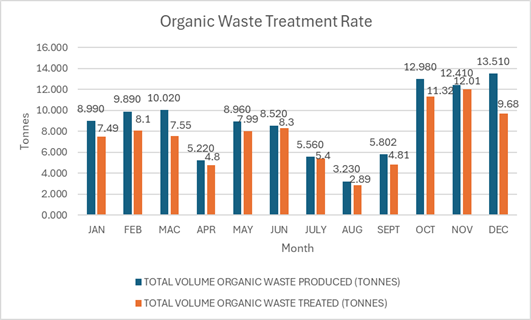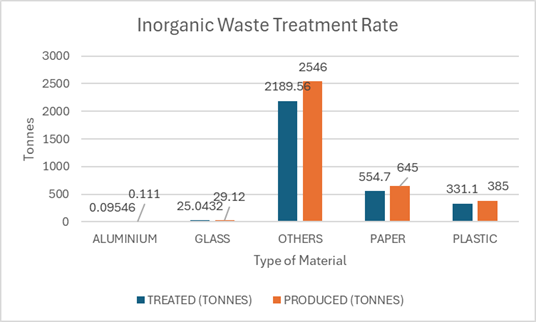UMPSA Waste Management 2024
UMPSA intensified its commitment to sustainable waste management through the introduction of innovative organic waste treatment methods. These include composting for on-campus use as organic fertilizer, anaerobic digestion to generate biogas, and food waste segregation at the source to prevent contamination.
As a best practice, UMPSA complemented these measures with campus-wide awareness campaigns, collaboration with local recycling and waste treatment partners, and monitoring by the Sustainable Development Centre to ensure process efficiency. Through these integrated efforts, 86% of the waste generated in 2024 was successfully treated and recovered, significantly reducing the university’s environmental footprint and contributing directly to SDG 12.3 – Reduction of Waste Generation through Prevention, Reduction, Recycling, and Reuse.

Figure 1: Organic Treatment Rate

Figure 2: Inorganic Waste Rate

